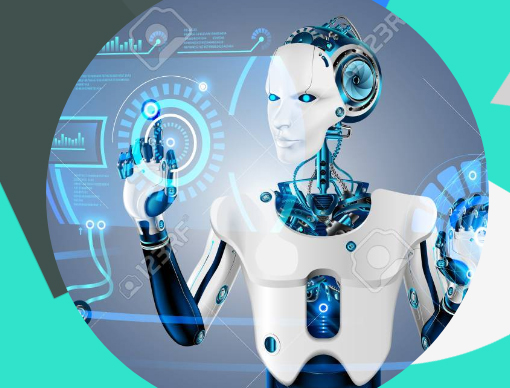7 Transformative Power of Artificial Intelligence

Introduction:
Artificial Intelligence (AI) has rapidly emerged as a game-changing technology, revolutionizing various aspects of our lives. From voice assistants and recommendation systems to autonomous vehicles and medical diagnostics, AI is transforming industries, enhancing productivity, and pushing the boundaries of human potential. In this blog post, we’ll delve into the captivating world of artificial intelligence, exploring its definition, applications, benefits, and potential concerns. Let’s embark on a journey into the future powered by AI!
Artificial Intelligence
- Understanding Artificial Intelligence: Artificial Intelligence refers to the development of computer systems that can perform tasks that typically require human intelligence. It encompasses various subfields, including machine learning, natural language processing, computer vision, and robotics. AI systems learn from data, identify patterns, make decisions, and adapt based on feedback, enabling them to perform complex tasks with accuracy and efficiency.
- AI Applications Transforming Industries: AI has made significant strides across industries, driving innovation and unlocking new possibilities. In healthcare, AI-powered systems assist in disease diagnosis, drug discovery, and personalized treatment plans. In transportation, self-driving cars equipped with AI algorithms promise safer and more efficient journeys. AI is also revolutionizing finance, manufacturing, retail, agriculture, and cybersecurity, among others, by automating processes, improving decision-making, and enhancing operational efficiency.
- Enhancing Productivity and Efficiency: One of the primary benefits of AI is its ability to augment human capabilities and improve productivity. AI-powered tools automate repetitive tasks, freeing up time for humans to focus on more complex and creative endeavors. Intelligent virtual assistants like chatbots streamline customer service interactions, while AI-driven data analysis uncovers valuable insights from vast amounts of information. By handling mundane tasks, AI empowers individuals and organizations to achieve more in less time.
- Personalization and Recommendation Systems: AI algorithms have revolutionized the way we interact with technology. Recommendation systems leverage AI to provide personalized suggestions for products, content, and services based on user preferences and behavior. These systems can be found in e-commerce platforms, streaming services, and social media platforms, enhancing user experiences and driving engagement. AI-powered personalization ensures that users are presented with relevant and tailored options, enhancing customer satisfaction and loyalty.
- Advancements in Natural Language Processing: Natural Language Processing (NLP) is a branch of AI that enables computers to understand, interpret, and generate human language. NLP powers voice assistants like Siri, Alexa, and Google Assistant, allowing users to interact with their devices using natural speech. NLP algorithms can also analyze and summarize text, facilitate language translation, and even generate human-like text. These advancements in NLP improve communication, accessibility, and efficiency across various domains.
- Ethical Considerations and Responsible AI: As AI continues to advance, it raises important ethical considerations. Questions around data privacy, bias in algorithms, job displacement, and the impact of AI on society need careful examination. Developers and policymakers must prioritize responsible AI practices, ensuring fairness, transparency, and accountability in AI systems. Collaboration between technology experts, ethicists, and policymakers is crucial to establish guidelines and regulations that protect individuals and mitigate potential risks.
- The Future of AI: Possibilities and Challenges: The future of AI holds immense potential and exciting possibilities. As technology evolves, AI is expected to further transform industries, drive innovation, and address complex societal challenges. Breakthroughs in areas like quantum computing, neural networks, and robotics will expand the capabilities of AI systems. However, challenges such as data privacy, cybersecurity, ethical dilemmas, and the need for continuous skill development must be addressed to ensure a sustainable and inclusive future with AI.
Conclusion:
Artificial Intelligence is reshaping the world as we know it, unlocking new opportunities, and solving complex problems. Its applications span across industries, driving innovation, and improving productivity. However, we must approach AI with a sense of responsibility, addressing ethical considerations and ensuring the technology is used for the betterment of humanity. With careful planning, collaboration, and an emphasis on responsible AI practices, we can harness the transformative power of AI and shape a future that is augmented by intelligent systems. The journey into the realm of AI has just begun, and the possibilities are limitless.

